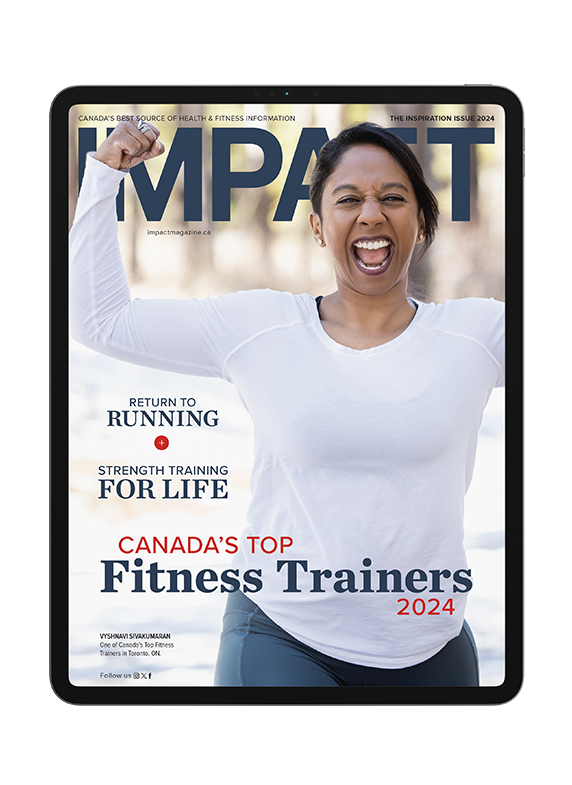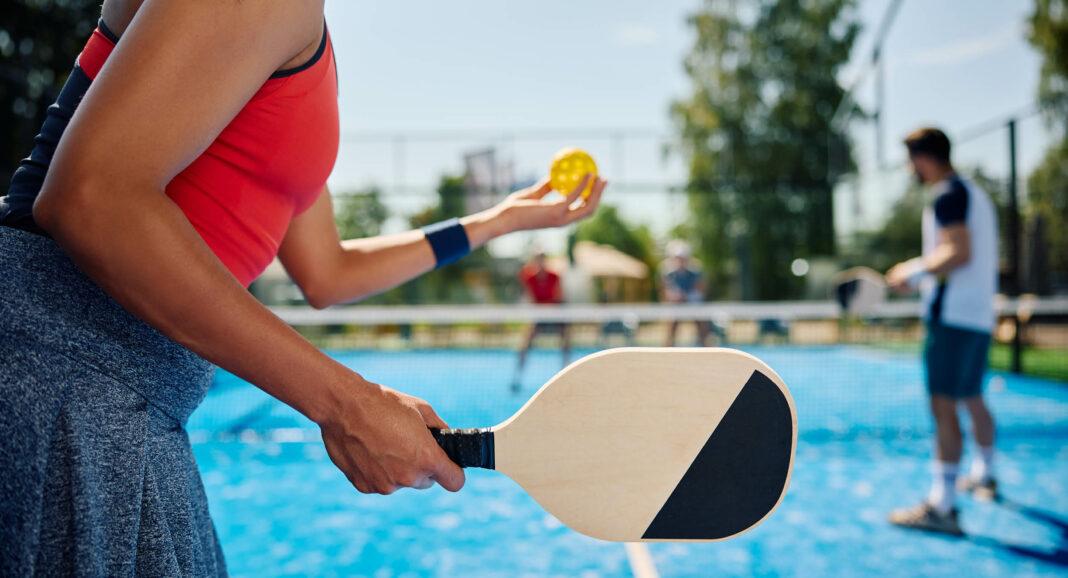As we become adults, we tend to give up a lot of the things we enjoyed as kids. Whether it’s roller skating, dancing or playing an instrument, our once-favourite activities inevitably fall to the wayside when we hit our mid-twenties.
This is especially true when it comes to playing sports. A recent survey by the Canadian Fitness and Lifestyle Institute found that only 27 per cent of adults participated in a sport in 2019-2021, and only 23 per cent did so on a weekly basis. Yet, current data also suggests that most of us—around 75 per cent—played sports as kids.
So, what gives?
“Adults tend to gravitate towards the exercise space,” says Drew Mitchell, director of Physical Literacy at the Sport for Life Society in British Columbia. “Going to the gym, going for a swim, going for a hike…these would be more in the exercise space versus organized sport, which a lot of people still view as being either for professionals or kids and youths, and not adults.”
That’s not to say that your gym workouts or daily jogs aren’t beneficial, but those who stick to solo forms of exercise could be missing out on a ton of additional mind and body benefits that come with team or organized sports.
On top of the calorie burn, improved cardiovascular health, lowered stress levels and boosted mood that’s associated with regular exercise, there’s also the psychological benefits that playing on a team provides.
A 2013 report by the International Journal of Behavioral Nutrition and Physical Activity found that team-sport participants had better physical and social functioning, mental health, vitality and life satisfaction compared to gym-goers and walkers. The study authors credited these extra benefits to the social connectedness, community, self-esteem and peer bonding.
“Covid has clearly shown us that we are social beings. We need to be connected to others, and we need to keep our bodies moving
on a regular basis, or our mental health suffers,” says Mitchell.
“When we’re talking about sport, especially team sport, being a part of a group and having that social connection motivates you to be there more often. It also increases your confidence, and it gives you a general level of satisfaction.”
This was certainly the case for Meghan Burrows, a thirty-something mom, fitness coach and negotiator for Doctors of BC in North Vancouver, who joined a competitive women’s soccer team in September 2023. After having her baby the year prior, she was looking for a source of exercise and motivation—and wound up getting a whole lot more.
“I’ve noticed that I have more patience because soccer is a strategic game,” she says. “I’ve also noticed that I am happier and look forward to how I am going to feel post-game, regardless of the weather conditions or score.”
But for Burrows, the perks of playing a sport don’t stop when she’s off the field. She notes that her desire to show up for her team has inspired her to make healthier choices between games, including drinking less alcohol, eating mindfully, getting proper rest and working out consistently.
“Playing soccer also required me to be more consistent with my mobility and strength routines, so I can remain injury-free and enjoy playing for a long time,” she says.
Of course, there are many reasons why adults hang up their cleats (or gloves, or skates). According to a 2015 Harvard study,
the top three reasons people over the age of 26 quit playing sports are health reasons, a lack of time, or a lack of interest or motivation.
Luckily, plenty of sports clubs, organizations, and community centres offer ways for adults to engage in sports, regardless of
their age and athletic ability. Whether it’s a highly competitive team or a Friday-night beer league, many of the benefits are the same.
“I believe absolutely anyone can play a sport,” says Mitchell. “To me, adulthood is not the barrier.”
Get in the Game
Want to get involved in a team sport? Follow these tips for getting started.
- Start with your local community centre. Many offer open gyms, drop-in games, or recreational sport programs tailored to adults.
- Attend an adult skills clinic in the sport you want to play before committing to a team. Google clinics in your area run by local sports clubs and sign up for one to find out where you’re at physically. (You might even make friends or find a team to join.)
- Contact former teammates. “If you’ve played before, check in with your old teammates and see what they are up to,” says Burrows. They may be looking for new players or know a team that is.
- Consider lower-intensity or modified sport. Plenty of organizations offer adaptive, low-impact, or “age-appropriate” leagues for various age groups. “It’s all about your attitude,” says Burrows. “If you are willing to show up, there will be people there to guide you and make you feel welcome.”
- Think outside the box. There are plenty of sports outside of the ordinary, so consider trying something new. Ultimate frisbee, pickleball, curling, bowling, and bocci ball are all gaining popularity, especially among adults.
- Join with a friend. Or don’t. “Don’t feel nervous about going alone,” says Burrows. “You will feel among friends once you get there.”
You May Also Like – Fitness for Two

Read This Story in Our 2024 Inspiration Issue
Read about our 2024 Canada’s Top Fitness Trainers – our top 30 from across Canada! How to Hire a Personal Trainer, The Dangers of Overtraining, Return to Running After Illness, Easy Vegan Garlic Noodles and more!
















